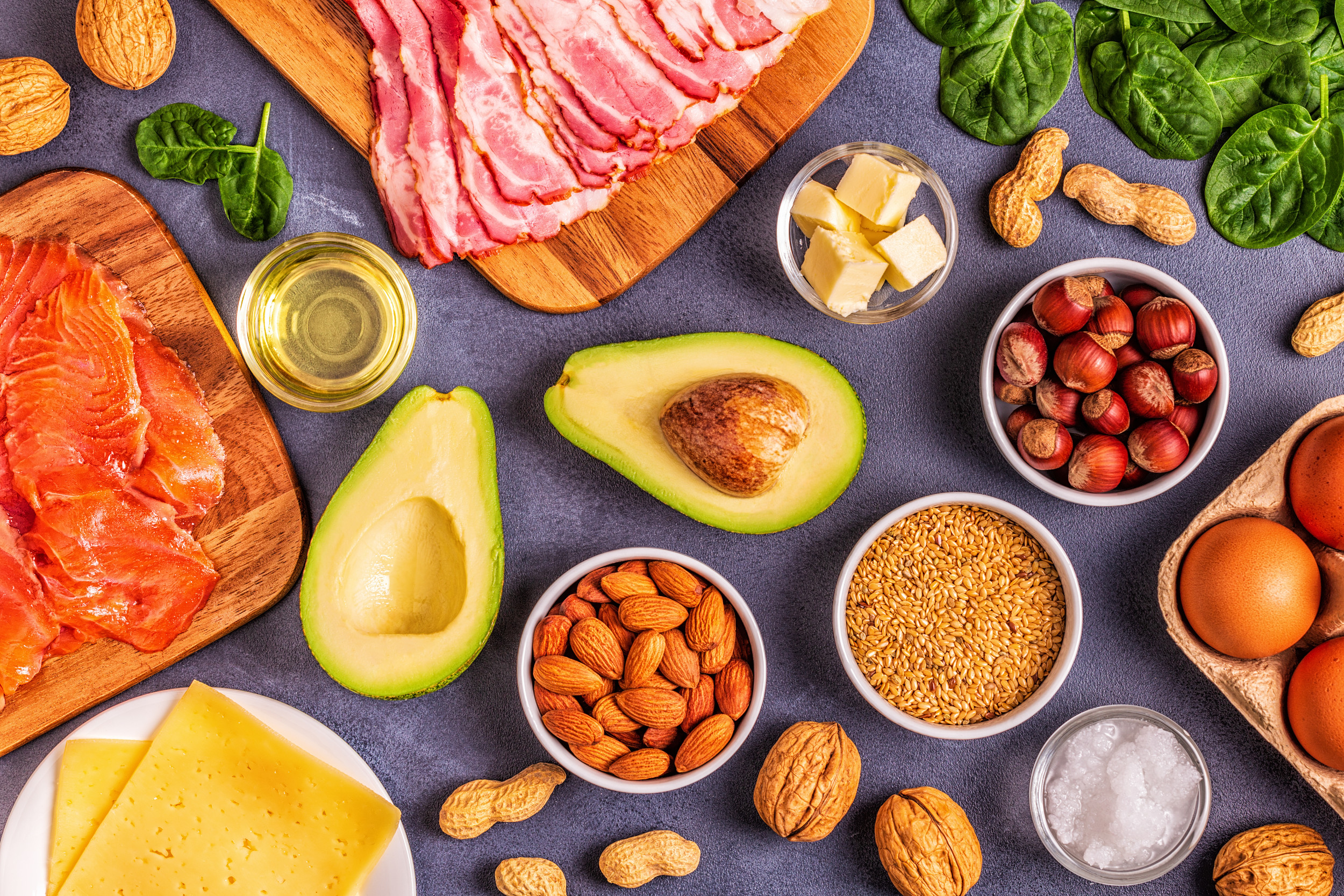Eating a plant-based diet, or even going completely vegetarian, can offer health benefits. Vegetarians tend to have fewer chronic conditions and may live longer than their meat-eating counterparts.
Pictured recipe: “Egg in a Hole” Peppers with Avocado Salsa
Then there’s the ketogenic diet (that high-fat and ultra-low-carb way of eating), which conjures up images of bacon, burgers and butter. Some claim that it can help you lose weight, improve cholesterol levels, improve blood pressure and help manage blood sugar levels (though there is little science to support these claims).
But can you combine these two “diets”? Put another way: Is a low-carb vegetarian keto diet even feasible?
Vegetarian keto is doable. It’ll require more brainpower and planning than the typical ketogenic diet, though, so we’re going to walk you through what you can eat and then outline some common pitfalls and what to watch out for.
What Foods Can You Eat on a Vegetarian Keto Diet?
This list of what to eat will get you started. Think lots of veggies—like the zoodles pictured above—with proteins and some fruit mixed in.
Plant-based fats: Avocado and its oil, coconut and its oil (steer clear of any sweetened coconut, though), olives and their oil.
Low-carb vegetarian proteins: Tofu, seitan and tempeh — Although tempeh is higher in carbs than tofu and seitan, it’s also high in fiber, so the net carbs (AKA the total grams of carbs minus the grams of fiber) make it keto-friendly.
Be cautious of faux-meat burgers, bacon, etc., and read their ingredient lists and nutrition labels, as they may contain added sugar or be an unexpected source of carbs.
Low-carb veggies: Of course there’s cauliflower, but there’s also zucchini, Swiss chard, mushrooms, asparagus, celery, spinach, bok choy, broccoli rabe (rapini), cabbage, broccoli, kale, Brussels sprouts and lettuces (arugula, green and red leaf, endive, romaine, etc.).
Nuts: All nuts are solid choices when you’re eating vegetarian keto, but some are higher in fat and lower in carbohydrates than others, such as pecans, macadamias, pili nuts and hazelnuts.
Seeds: You really can’t go wrong here. Seeds are high in fat, low in carbs and typically full of fiber, which can bring down the net carbs in your meal or snack.
Dairy: Full-fat plain yogurt and plain cottage cheese (avoid flavored high-sugar varieties), hard cheeses and butter.
Eggs: This is arguably the easiest, healthiest and most complete way to get protein if you’re eating vegetarian keto. Eggs also give you a nice dose of fat and have practically no carbs whatsoever.
Berries: Strawberries, raspberries and blackberries are all lower-carb fruit choices—not because they’re low in carbohydrates, but because they’re packed with fiber, so your net carbs are low. You’ll probably want to skip blueberries, though—a cup will eat up nearly all of your daily carb allotment.
And, as important as it is to come up with a list of foods you can eat, to be successful on a vegetarian ketogenic diet, you may also want a list of foods you can’t eat (i.e., those that will throw you out of ketosis state). Those are: beans and lentils (aka legumes), grains, most fruits, and all varieties of potatoes. These foods are super nutritious and can absolutely be part of a healthy eating pattern, but they are higher in carbs, which the keto diet strictly limits.
Challenges with Vegetarian Keto
The main reason a vegetarian keto diet is so challenging is that many of the staples of a vegetarian diet are high in carbs, particularly foods like beans, lentils and whole grains that vegetarians rely on for protein but are also higher in carbs than the keto diet allows.
Another speed bump is that vegetarians already need to be mindful of falling short on key nutrients, such as vitamins B12 and D, iron, zinc, calcium, omega-3s and even protein. Layering on another restrictive diet like keto will make meeting your nutritional needs much harder. Cutting out breakfast cereal (fortified with B12), legumes and whole grains (for zinc, iron and protein) limits key sources of some of these nutrients.
As with any ketogenic diet, there may be unpleasant (and unhealthy) side effects like constipation, bad breath and keto flu.
What Does the Science Say?
Search a scientific research database for “vegetarian keto” and you won’t find much. A study published in JAMA Network Open in 2023, found that low-carbohydrate eating patterns emphasizing high-quality plant-based foods were associated with less weight gain over time. The effects were more pronounced in individuals with obesity, who saw greater benefits from plant-focused, nutrient-rich eating. Eating patterns that are rich in whole grains, plant proteins and healthy fats, were linked to more stable weight outcomes. It’s important to note their diets did include 38-41% of their energy from carbohydrates, so it was not a fully keto diet.
The Bottom Line
If you are on a vegetarian diet and are curious about keto, the good news is that it’s possible to follow a keto diet that doesn’t include animal products. But this is a way of eating that requires some up-front planning and due diligence along the way so you don’t become nutritionally deficient. And, ultimately, it’s best as a short-term diet, not one to stick to for the long haul.




